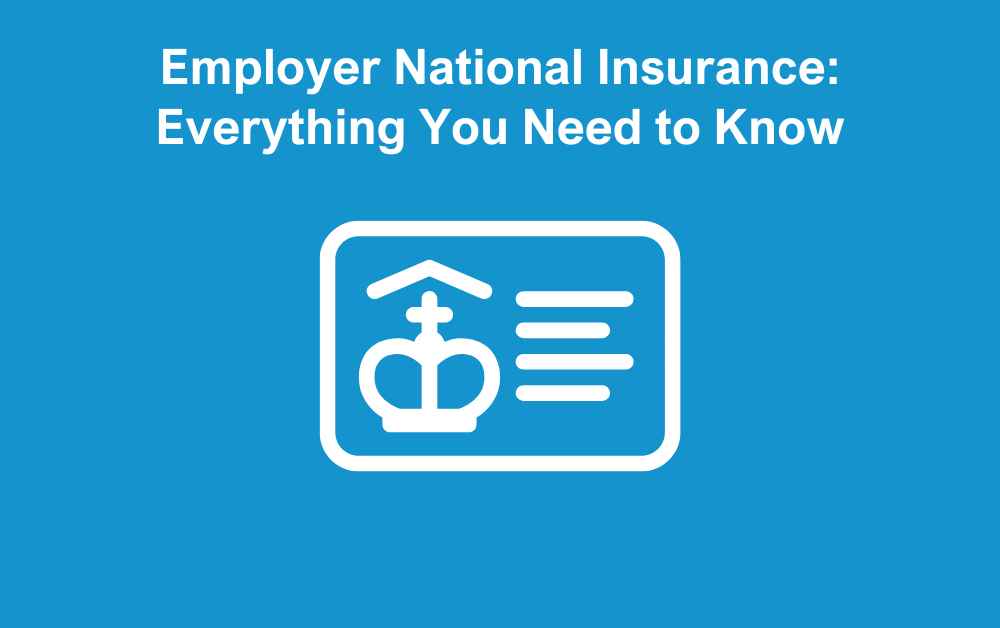With employer National Insurance increases just around the corner, now is the time for businesses to get to grips with the current rates, employment allowance, and how to effectively manage contributions. These changes can have a significant impact on payroll costs, so ensuring you’re well-prepared is crucial. Understanding your obligations and taking proactive steps to optimise your contributions will help you avoid unexpected financial strain and potential fines.
In this blog, we’ll break down what you need to know including the latest updates, and practical ways to stay compliant while keeping costs under control.
Jump to a section:
- What is Employer National Insurance?
- Why Do Employers Have to Pay National Insurance?
- Current Employer National Insurance Rates
- Employer National Insurance Increase from April 2025
- How to Manage Employer National Insurance Costs
- Employment Allowance
- How The HR Booth Can Help
What is Employer National Insurance?
Employer NI is a tax that employers must pay on their employees’ earnings above a certain threshold. It is a contribution towards state benefits, including the NHS, pensions, and statutory payments such as maternity and sick pay. The rate varies depending on factors like salary level and employment status, and employers must calculate and pay this alongside employees’ wages through PAYE.
Why Do Employers Have to Pay National Insurance?
This contribution is a legal requirement in the UK. They fund essential public services, including the NHS, state pensions, and statutory benefits. Employers must pay NI to ensure their employees are covered for benefits like maternity pay, sick leave, and unemployment support. Failing to comply can lead to penalties and increased payroll costs.
Current Employer National Insurance Rates
Employers must pay Class 1A and 1B National Insurance rates. The current rate depends on employees’ earnings and their category letter. For the 2024/25 tax year:
- Employers pay 13.8% on earnings above £9,100 per year.
- No contributions are required for employees under 21, apprentices under 25, and veterans for the first year of employment (up to a certain threshold).
- Specific sectors, like freeports, have reduced rates.
Understanding these rates is crucial for accurate payroll calculations and budgeting.
Employer National Insurance Increase from April 2025
As part of the employment law updates, the employer National Insurance rate will increase from 13.8% to 15% from April 2025. This change means that businesses will need to contribute more towards their employees’ NI on earnings above the threshold, leading to higher payroll costs. The increase is designed to provide additional funding for public services, but it may place financial pressure on businesses, particularly small and medium-sized enterprises (SMEs).
Changes will also be made to the threshold as it will decrease from £9,100 to £5,000 per year.
To prepare for these changes, employers should assess their payroll budgets and explore cost-saving strategies. Businesses may need to adjust financial plans, review staffing costs, and consider alternative remuneration structures to mitigate the impact of the rise in contributions. Staying proactive and informed will be essential to ensuring compliance and maintaining financial stability.
How to Manage Employer National Insurance Costs
Analyse Payroll Costs
Employer National Insurance contributions (NICs) are based on employee wages, but they’re not the only expense. Total payroll costs often exceed gross salaries.
When budgeting, factor in all payroll-related expenses to ensure your business can afford the full cost of employing staff.
Consider Salary Sacrifice Schemes
Offering benefits like pension contributions through salary sacrifice can lower National Insurance liability.
Stay Updated with Legislation
Regularly checking for updates on National Insurance changes can prevent unexpected expenses.
Utilise Payroll Software
Investing in payroll software can automate National Insurance calculations, ensure compliance with tax regulations, and help manage contributions more efficiently, reducing administrative burdens.
Employment Allowance
Employment Allowance is a government scheme that allows eligible employers to reduce their NI bill by up to £5,000 per year for the 2024/2025 tax year. This will increase to £13,500 in April this year.
How The HR Booth Can Help
Navigating employer National Insurance changes can be complex, but The HR Booth is here to support businesses in staying compliant while optimising costs. Our HR and payroll experts provide tailored advice, helping you:
- Understand your National Insurance obligations
- Implement cost-saving strategies
- Manage payroll effectively
- Ensure compliance with changing regulations
With upcoming changes in employer National Insurance rates, it is more important than ever to stay informed and proactive. Contact The HR Booth today to discuss how we can help you manage payroll efficiently and reduce financial strain.
Final Thoughts
Employer National Insurance is a crucial part of running a business in the UK. With expected increases in 2025, now is the time to review your payroll strategy and take advantage of available allowances. Staying informed and implementing cost-saving measures will ensure your business remains financially stable while meeting its obligations.
If you need expert guidance on National Insurance or any other HR related matter, contact The HR Booth. We are always here for professional support tailored to your business needs.







